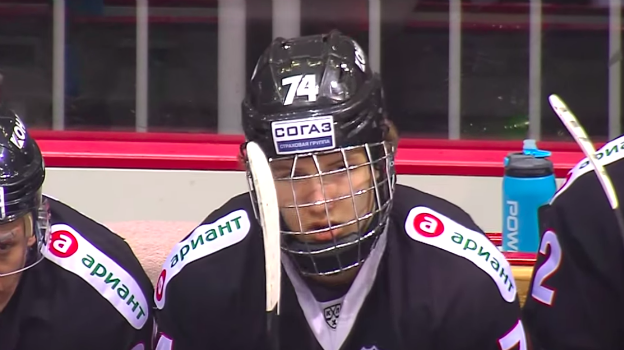Can any of the WJC underdogs break through in Buffalo?
It’s known who the Big 5 at the World Juniors are, as Canada, the United States, Sweden, Russia, and Finland historically form the top half of the tournament. But can anybody else take a step forward this year?
In the 41 years the tournament as been played, either Canada or Russia (including their days as the Soviet Union) have won 29 gold medals. 10 of the other 11 gold medals have been won by Finland, the United States, or Sweden. The last time one of the Big 5 didn’t win the gold medal was 2000 and 2001 when the Czech Republic won back-to-back tournaments.
Back before Czechoslovakia split into the Czech Republic and Slovakia, it was a Big 6 at the World Juniors as Czechoslovakia won 11 medals. But since 1994, which was the first year with Russia, the Czech Republic, and Slovakia as participants, the Big 5 have won 68 of 72 medals.
Most recently, Martin Reway and Slovakia shocked Sweden in the bronze medal game of the 2015 tournament. The Czech Republic picked up a bronze medal win in 2005 thanks largely to a strong showing from Rostislav Olesz and Marek Schwartz. Slovakia earned a bronze in 1999, and the year before that Switzerland won a bronze, their only medal ever at the tournament, when David Aebischer led the team to a win over the Czech Republic.
The Czech Republic are probably the most likely to bust through at this year’s tournament. The Czechs are playing in the weaker of the two groups with Belarus, Russia, Sweden, and Switzerland, and boast a roster with some exciting high-level talent.
Martin Necas and Filip Chytil, who were selected No. 12 and No. 21 overall in the 2017 NHL draft respectively, will lead the team, while Filip Zadina, a forward playing for the Halifax Mooseheads of the QMJHL protected to go in the top 5 of the 2018 draft, is poised for a breakout performance. The team should be ready for this level of competition as a handful of players from last year’s tournament will be back for a second go.
Switzerland advanced to the quarterfinal last year after three straight tournaments in the relegation round. They produced likely their best player in the country’s history at last year’s draft as Nico Hischier became the first Swiss player to be drafted first overall by the New Jersey Devils. Unfortunately for the Swiss U20 team, Hischier is having an incredible rookie season with the Devils and won’t be with the team in the tournament. This will likely be a down year for the Swiss as their top players from 2017 aren’t returning.
The final team in the weaker group is Belarus, who’s bounced up and down the last few years from winning gold at the Division I tournament to being relegated from the World Juniors. Maxim Sushko, who was selected in the fourth round of the 2017 NHL draft, has 16 goals in 27 games in the OHL, and will be Belarus’ top weapon. Still, they appear to be destined for another relegation match with the loser of the stronger group.
In the stronger group we have Canada, the United States, Finland, Slovakia, and Denmark. It’s anybody’s guess as to who finishes first, second, and third, but the other battle is between Denmark and Slovakia to break through to the playoff round and out of the relegation games.
Denmark has enjoyed a lot of success at the tournament recently. Since being promoted in 2014, Denmark has reached the quarterfinal in three-straight tournaments thanks largely to the country developing some of its strongest players ever in Nik Ehlers and Oliver Bjorkstrand. Last year was Denmark’s best year at the tournament as they defeated Finland and the Czech Republic in the round robin and finished second in the group. This year, Denmark will be in tough as many of their key players have graduated, but
Finally, there’s Slovakia, who have lost in the quarterfinal in back-to-back years after winning bronze in 2016. The team will be duking it out with Denmark to not finish last in the group stage. They don’t have any star names or top prospects for the upcoming draft, but Slovakia boasts a team with a lot of returning players from last year’s tournament.
In sum, it seems unlikely that anybody will be able to break through and end the streak of success seen by the Big 5 teams in this year’s tournament in Buffalo. The Czechs have a strong team and are playing in a relatively weak group, but they’ll still be in tough to get through Canada, the United States, or Finland in the quarterfinal.

